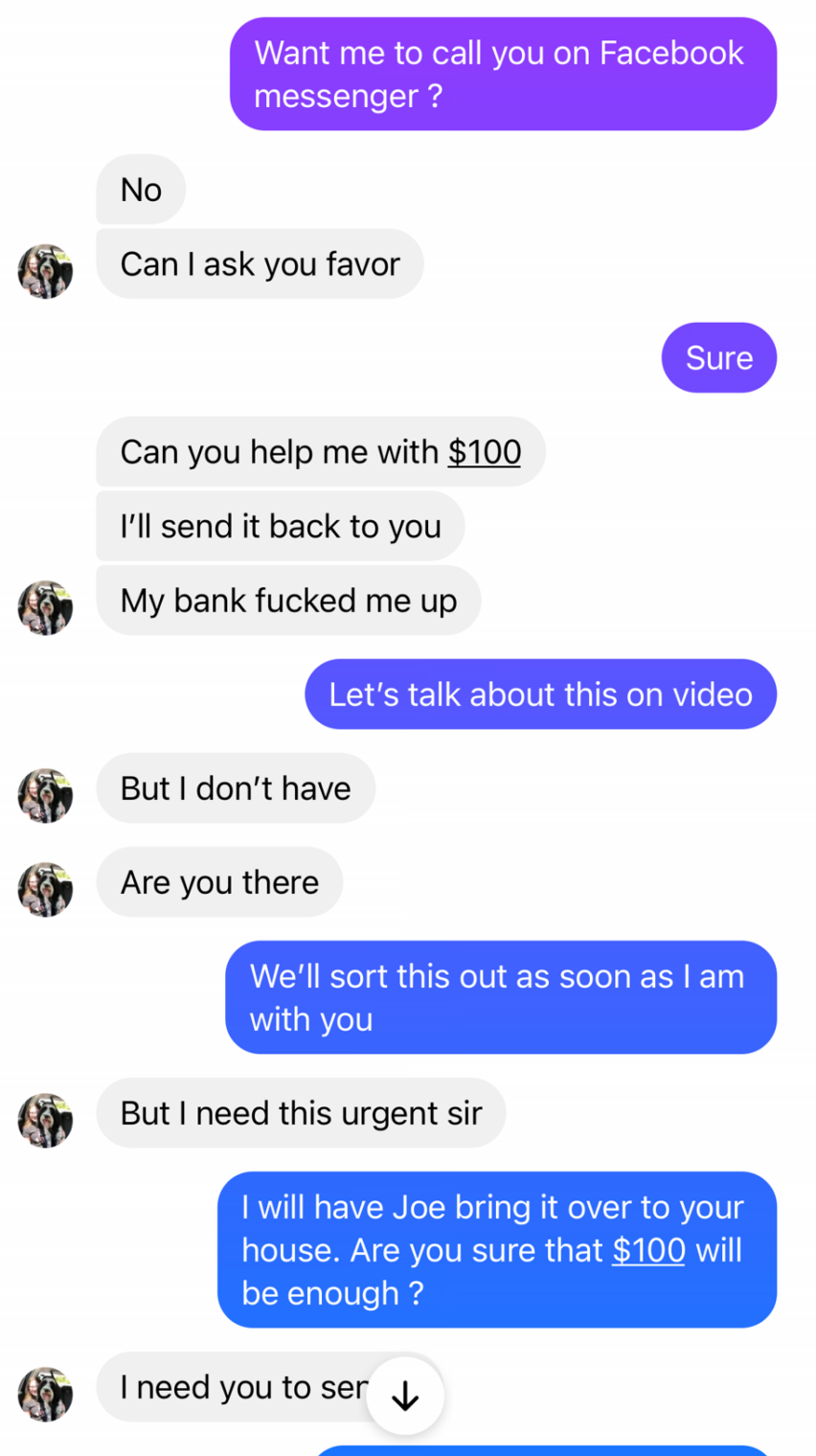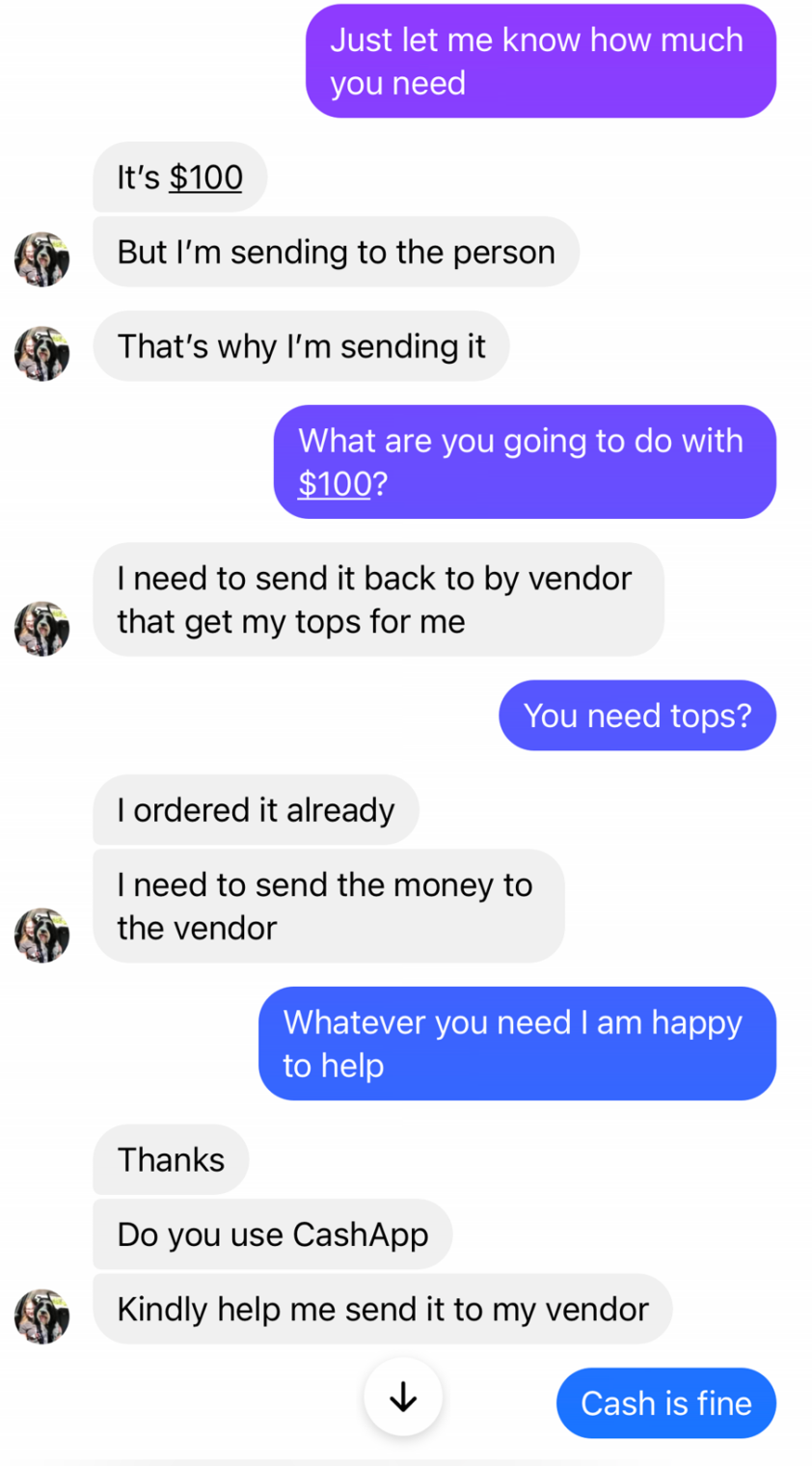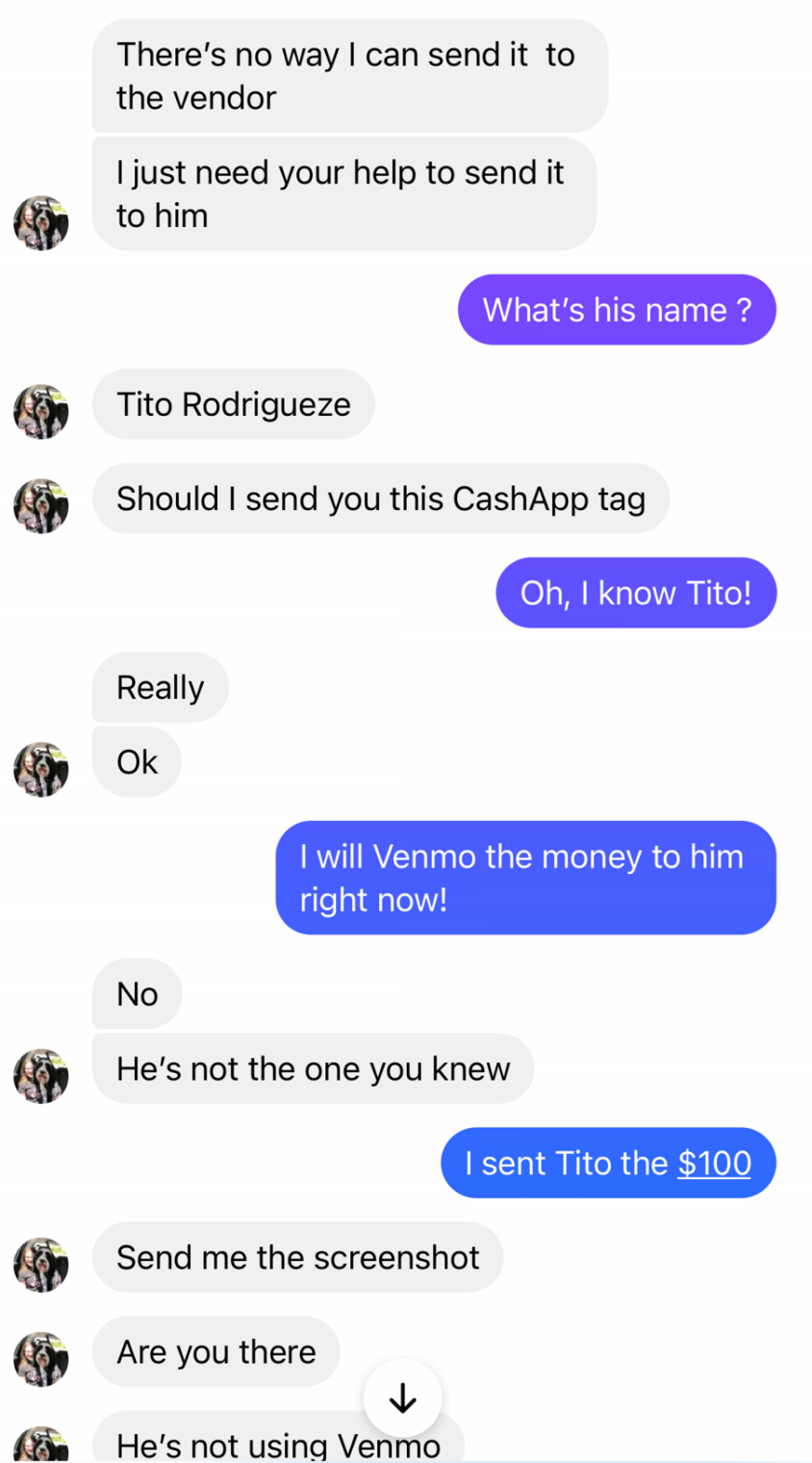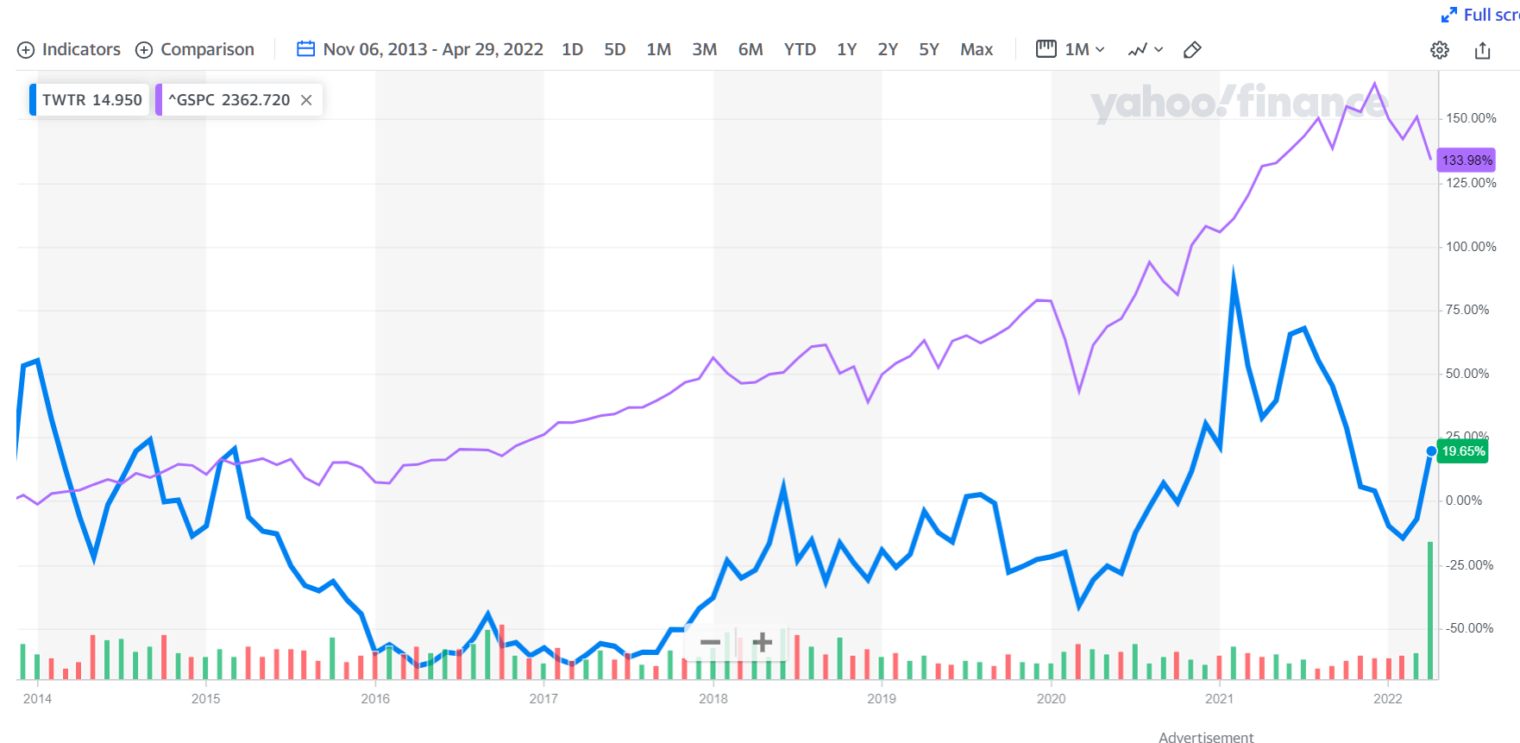Twitter will soon be owned by African American entrepreneur and investor Elon Musk, who is paying $44 billion for a company that lost $493 million in 2021 on revenue of $5 billion (press release). The company would have earned something like $273 million if it hadn’t had to pay out on a big shareholder lawsuit. So if we look at things in the best possible light, and forget the fact that the government gave all of these screen-based companies a big lift in 2020 and 2021 by making non-screen-based activities illegal (except “essential” marijuana shopping in Maskachusetts and California), it will take 161 years for Twitter to earn $44 billion in profit. Unless the Silicon Valley life extension enthusiasts can deliver, Elon Musk will have died of old age before the Twitter investment pays back.
What could Elon Musk possibly do to make this platform worth $44 billion (other than wait for a few years when $44 billion could be the price of a Diet Coke)? Is the answer that Twitter can become as addictive as Facebook and therefore as profitable, on a percentage basis? Meta earned something like 30 percent profit after taxes. If Twitter could do the same it would earn $1.5 billion per year and Elon Musk would have paid 29X earnings for a company that is slowly growing (in other words, if everything goes perfect at Twitter it still isn’t an obviously good buy at $44 billion). Can we add this to the long list of things about the stock market that baffle me? (Remember that I’ve been skeptical of Tesla stock and Bitcoin for about 10 years, which is nothing to brag about in the investment world.)
Let’s look at some fun stuff from Twitter regarding Twitter….
Jeff Bezos says that it is good when a billionaire owns Atlantic magazine (Laurene Powell Jobs, who made money by marrying Steve Jobs, and promotes low-skill migration) and it is, presumably, good when a billionaire owns the Washington Post (Jeff Bezos himself). But it is bad when a billionaire owns Twitter:
Here’s a look at the likely thoughts of the Twitter Thought Police:
Here’s a chart of enthusiasm for censorship by party affiliation:
A summary of the situation:
Suppose that Elon Musk cancels the cancelers who work at Twitter. The folks who permanently suspended Donald Trump, for example, would have to look for other work. What if they re-formed as an independent company that took the entire Twitter feed and bowdlerized it by filtering out anything from the New York Post, vaporizing anything that says something positive about Donald Trump, etc. This would become a cherished safe space for Joe Biden voters. What to name the site? How about SafeTwit?
Full post, including comments 






